Even more important than Christmas or New Year’s Day, Easter is a unique moment all over Greece, full of rituals, traditions, and stunning food.
Here is everything you need to know about how to enjoy a Greek Easter and all about the celebrations in Greece.
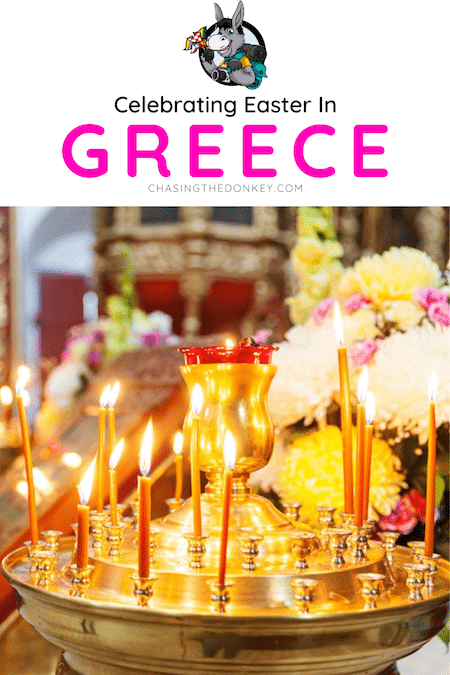
One of the most heartfelt and special occasions within the Greek Orthodox Calendar is definitely Easter and the weeks leading to its celebration. Even more important than Christmas or New Year’s Day, Easter is a unique moment throughout Greece, full of rituals, traditions, and incredible food.
If you happen to visit the famous Balkan country during Easter, keep reading this article to discover all the things you didn’t know and that you shouldn’t miss during Easter in Greece.
Skip Ahead To My Advice Here!
Before Orthodox Easter
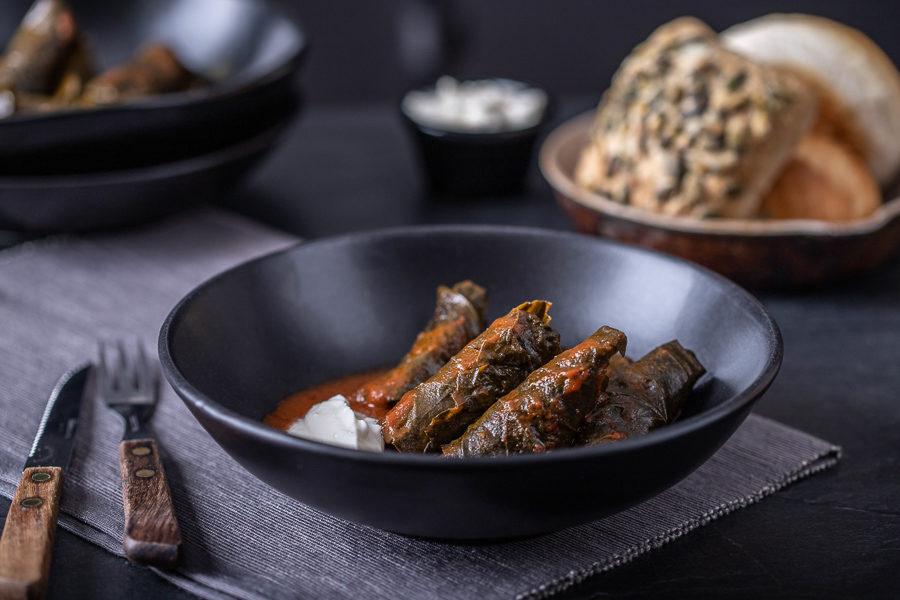
Kathara Deftera, also known as Clean Monday (and as Ash Monday in the Catholic world), marks the first day of Lent and the beginning of a countdown period until the arrival of the Great Week of Easter.
Clean Monday is a national and bank holiday during which most shops remain closed, as well as schools and universities.
One of the traditions of this special day involves all the family when everyone gathers with the entire family to fly colorful kites and have a wonderful day together. Kites are often flown at the beach or in parks and other green areas across the country.
During the day, the locals feast on plenty of seafood, such as squid and octopus, but they also eat dishes made with beans, lentils, and dolmades, and a sweet known as halva, made with tahini paste and honey.
This is because Clean Monday marks the beginning of 40 days of fasting. It lasts for the 40 days preceding the grand Easter celebrations. One more tradition of Clean Monday is eating a flat, delicious kind of bread known as lagana covered with sesame seeds and fragrant when it’s fresh from the oven.
During the period of Lent, many people in Greece will avoid eating any products from animal blood in their veins. In a nutshell, that means no meat, fish, milk, yogurt, cheese, or eggs. Seafoods such as shellfish are also allowed.
Although not every Greek respects the religious fasting of Lent until Easter, many people eat “clean” during this day, while many others take advantage of the dietary restrictions to cut on things such as chocolate or wine as well.
All over the country, Lent is also felt in restaurants and tavernas where they don’t necessarily stop serving meat but usually do offer a good variety of vegetarian dishes, lots of wild greens, beans, and grilled or stewed seafood.
Brands We Use And Trust
The Big Week Of Easter In Greece
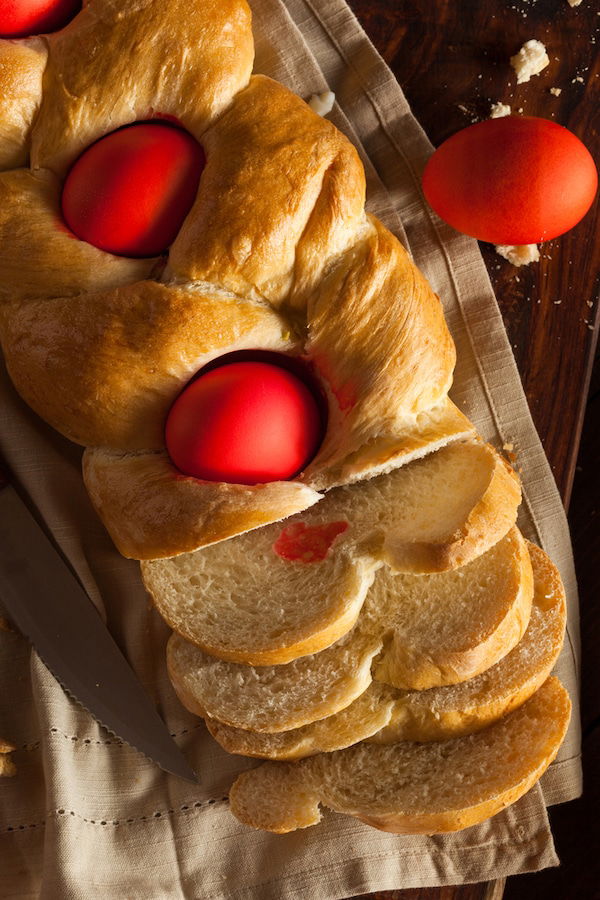
Locally known as Megali Evdomada (or Big Week), this week starts on Palm Sunday and ends with huge celebrations on Easter Sunday. Many people attend church services every evening during the week, while most people visit the church with friends and family on Easter Friday and Saturday evenings. Sundays, however, are primarily devoted to celebrations at home and with the family.
In every Greek household, families get ready and prepare their homes. At the same time, the women of the house have a hectic week preparing every dish that will, later on, be shared on the Easter table.
Kids and moms get together to dye eggs. Eggs are dyed red to represent the blood of Christ.
On Holy Thursday, mothers and grandmas get together to bake tsoureki, the bread of Easter. Tsoureki is a soft, semi-sweet brioche bread, and it’s a favorite of kids and adults alike. In some areas of the country, it’s common to find tsoureki with raisins or nuts. This soft bread usually has a tempting lemony flavor, given by citrus zest and sometimes also cinnamon.
This Holy Week or Big Week is the way in which Greeks revive and remember the last days of Jesus as a mortal man. The Church of Greece commemorates every moment of the life of Jesus, leading to the resurrection on each day of the week.
Good Friday Religious Traditions
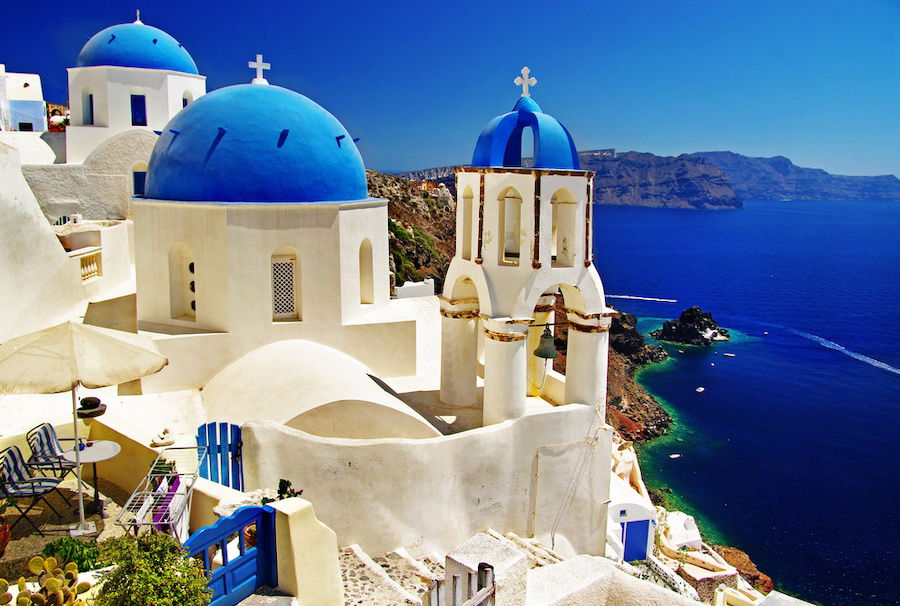
When Good Friday arrives, the profound mourning toll of the church bells across every church in the country paints a typical sad atmosphere of every corner of Greece. According to the Orthodox Bible, the bells of every church and chapel remind us about the funeral of Christ, who died in the ninth hour.
For this reason, at 9 in the evening, every Greek takes part in a symbolic funeral procession known as the epitaph. Every person participates in church with their candles candles in silence, a symbol of the flame of Jesus. It’s a very solemn experience that culminates in church with another religious service.
Greek Easter Saturday
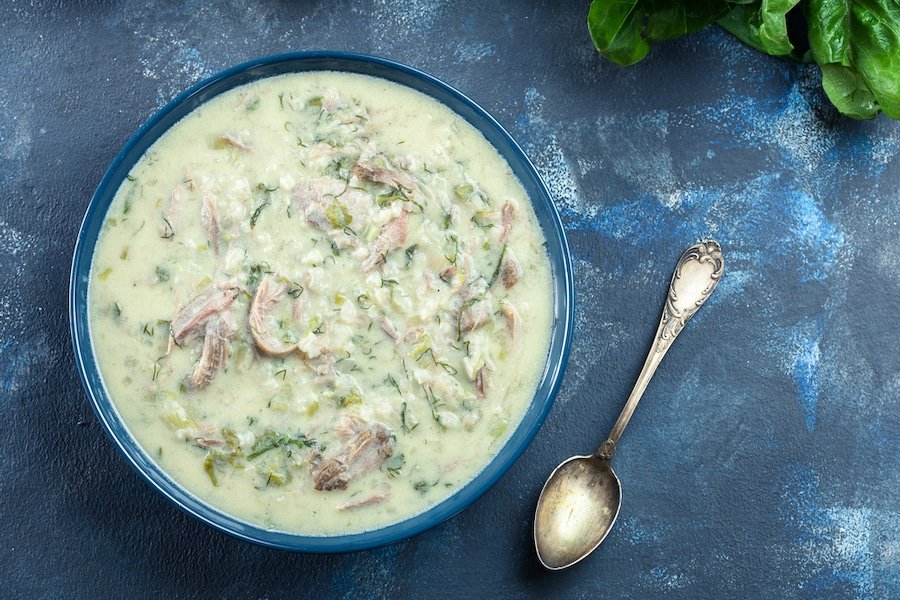
Lent, and therefore fasting, ends on Saturday. During the day, people and homes get ready for the midnight meal, which, according to tradition, should not be a very heavy or flavorful meal to make the body use meat and dairy products again.
For this evening, Greece’s most traditional dish is a soup known as magiritsa, made with lamb offal and romaine lettuce, commonly garnished with fresh herbs.
A lemon and egg sauce locally known as avgolemono. When the soup is ready, instead of sitting at the table to eat the magiritsa, everyone gathers in their local church right before midnight, holding their own candle (known as lamba).
Huge crowds gather at every church and chapel and often stand even outside because lack of space is quite common. Nobody misses the service on Saturday.
The most critical moment takes place just before midnight when every light in the church is turned off. This ritual is a symbol of Jesus’ descent into the kingdom of death.
The dark and sad moment lasts until the priest announces to the crows, “Christos Anesti” (Christ is risen). People cheer, greeting and hugging, kissing and exclaiming the joy of the resurrection. In many places, it’s the moment for big fireworks and the true joy of Easter.
The Lamba Across Greece
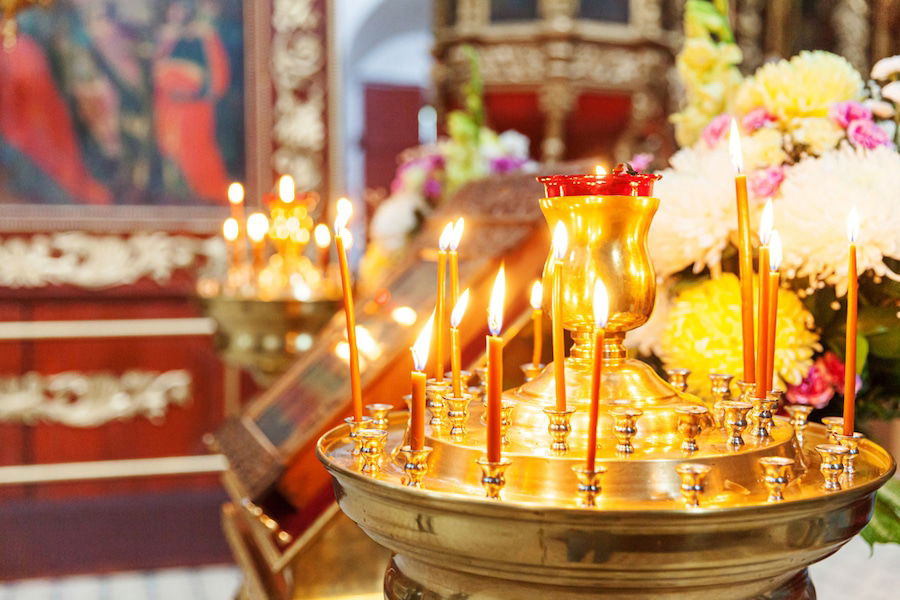
People carry their candles to be lit by the priest’s candle and one after the other, and from candle to candle, one of them is lit and flickering; the eternal burning flame spreads all over. People then walk back home, trying to keep the flame alive.
Once home, that candle is used to bless their home; locals bless the entrance of their houses by drawing a cross with the flame above the house entrance door to protect the household against everything evil. That black cross usually stands the test of time and lasts for a whole year.
It’s also common in many homes to try and keep this flame burning during the rest of the year – or, at least until the following Easter, in a specially built container known as kandili.
Greek Orthodox Easter Celebrations
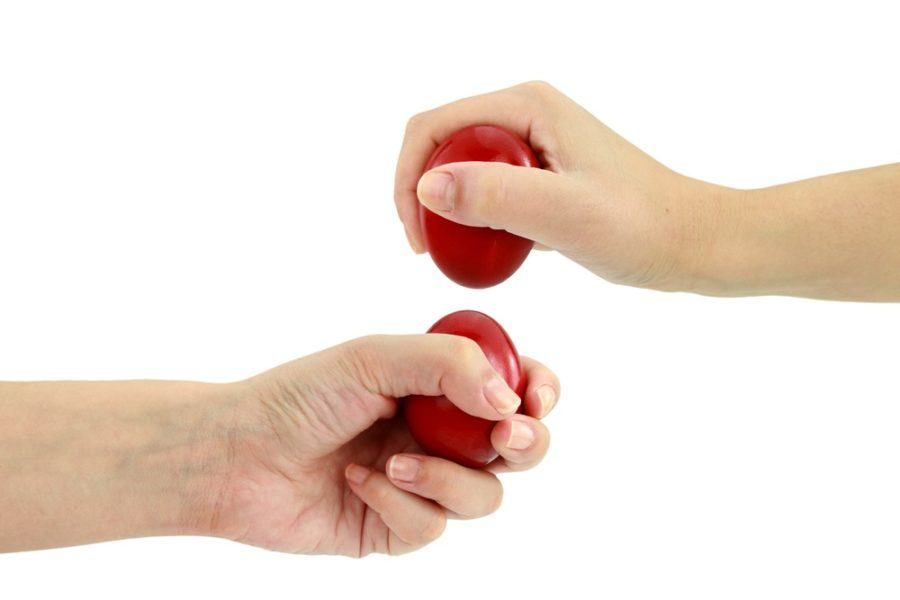
The real celebration of Easter starts now. The red-dye eggs give place to a traditional game known as tsougrisma. A game that kids and adults alike love to play. Every person breaks each other’s eggs by hitting them one against the other.
Tother’segg owner that lasts longer, the strongest egg of all, will be the one bound to enjoy good luck all year. There’s a traditional saying that goes with this ritual:” You close your mouth with an egg when Lent starts and open it with an egg when it finishes.”
Once at home, it’s time for the first meal that follows, the forty days of Lent. It’s time to sit at the table with the family and have a dish of soup cooked earlier in the day.
Especially younger ones, who don’t always enjoy magiritsa, gather with friends and go out to eat and party until the rise of the following day.
Move This Adventure To Your Inbox & Get An Instant Freebie

No spam. Unsubscribe at any time.
Kalo Pascha
Easter Sunday is a joyful day when families and friends gather to share a big Easter meal, which usually includes roasted lamb and other types of meat, traditionally grilled or roasted.
Salads, dips, and appetizers fill every table that people usually share for long hours, well into the late afternoon. Food, wine, music, and good company are the key traits of the Sunday celebrations, while everyone wishes each other Kalo Pascha! Or Happy Easter!
Is Greece Open Over Easter
Easter Monday is a public holiday primarily because people sleep off the day before. Another family-centric holiday, Easter Monday, is A variety of local traditions and casual celebrations that mark another family-centric holiday, Easter Mondaylosed, but museums and archaeological sites are open for tourists.
Editors note: Last year, I spent easter weekend in Corfu with my husband and kids. We had an Easter feast at a local restaurant, and we found many were open but were booked out, so I suggest you book ahead. We spent easter Sunday morning at a park exploring and found easter festivities in the center of town.

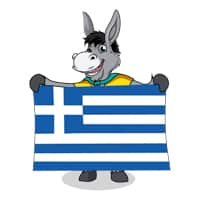
Very interesting article.